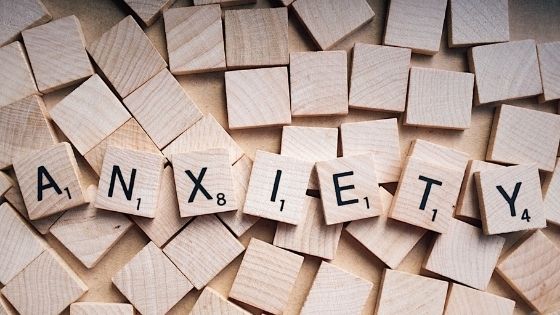Everybody gets worried and scared sometimes. You should know what these feelings are like in your everyday life.
But, there is a massive gap between feeling anxious about something and dealing with anxiety. Anxiety is a serious issue that not many people can handle on their own.


If someone near and dear to you suffers from anxiety, knowing how to find help with anxiety and how to make their daily struggles easier can be of great help.
Here are a few ways in which you can help a loved one with anxiety.
Understanding anxiety
Before we move on, you need to understand that anxiety is an essential element of human behavior rather than a flaw.
Back in the tribal days of our primitive societies, being anxious about potential threats and predicting and identifying them was an advantageous ability. However, the problem comes from the fact that we live in a different world nowadays.
Issues arise when people develop unhealthy coping mechanisms that cause them to start overthinking certain situations, often to the point where they cannot function properly.
Other folks might become perfectionists in their work to avoid feeling like an imposter who is not worthy of all the success.
These coping strategies offer short-term relief, but in the long run, they hurt people suffering from anxiety and people close to them, those who would want to help them.
Here is how you can help those who deal with anxiety.
Always be there for them
The fear of abandonment can be a substantial contributing factor to increased anxiety. The person you love needs to know that you will be there for them, no matter what.
Give them love and understanding. Be empathetic and compassionate even when their problems do not seem like such a big deal to you.
Remember that the struggle with anxiety takes time. It is a long process. The person you care about will have bad days and better days. Your task is to be there for them, no matter what.
Respect their independence
Helping someone with anxiety be independent can be a tricky balancing act.
On the one hand, you should offer them help in dealing with situations that cause them anxiety, such as getting groceries or cleaning their house. At the same time, you do not want to overdo it to avoid dependency.
Simultaneously, you should respect their independence and their ability to do some things on their own.
No text can help you make the right decision here – you are the one who knows the person you love and care about, so the ultimate judgment is yours. If in doubt, contact a mental health professional.
Offer support and hope
You shouldn’t be the one who does all the heavy lifting in the relationship, no matter what kind of relationship it is.
The person you love and care about should seek out professional help. You are there only to help them along the way and assure them that their troubles will grow easier to cope with time and proper treatment.
If you want, you can check out the resources and information about anxiety, and make sure to give this information to the person with anxiety when they ask about it.
If you come out with the information before they are ready to process it and deal with their issues, they might feel attacked, and the whole ordeal will be counterproductive.
When in doubt – ask!
Different people have different ways of dealing with anxiety. Ask the person with anxiety how you can help them.
Some people will ask for real help, while some simply need a distraction from their anxious thoughts. Sometimes, all a person with anxiety needs is someone to talk to.
Whatever their response might be, remember to always be a good listener. Just like everybody else, your loved one won’t always come to you because they need a solution to a particular problem.
Sometimes, the best thing you can do is listen to them with respect and care. And that is enough.
Remember that you matter as well
Helping someone with anxiety is a long-lasting, emotionally and physically draining process.
You might feel scared or frustrated. Sometimes you will feel too tired to move.
Remember to take care of your mental wellbeing, too. Do not neglect your physical health. Ensure that you have friends and family that you can talk to about your worries, but don’t forget that friends who will help you forget about your fears are equally important.
There is a possibility that you will need therapeutic help yourself. That is OK. If you maintain good care of your body and mind, you will care for your loved one much better.
Take some time to yourself. Read a book, watch a movie or go for a walk on your own to get a grip of your feelings and process them. And, do your best to get plenty of sleep.
















